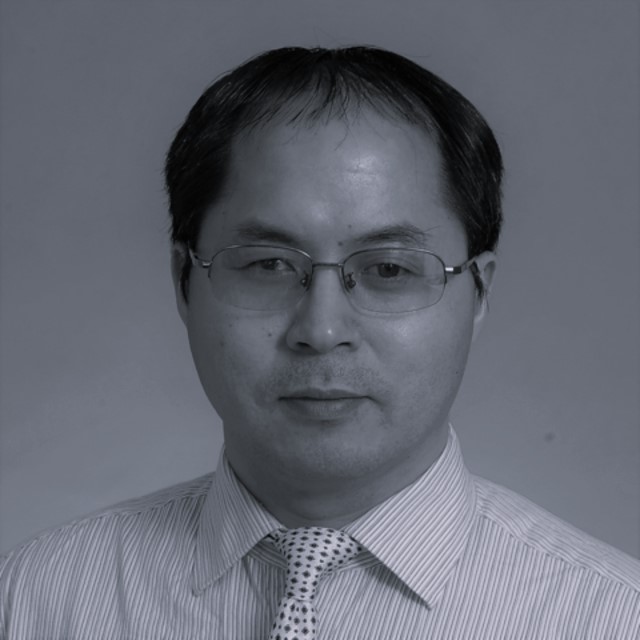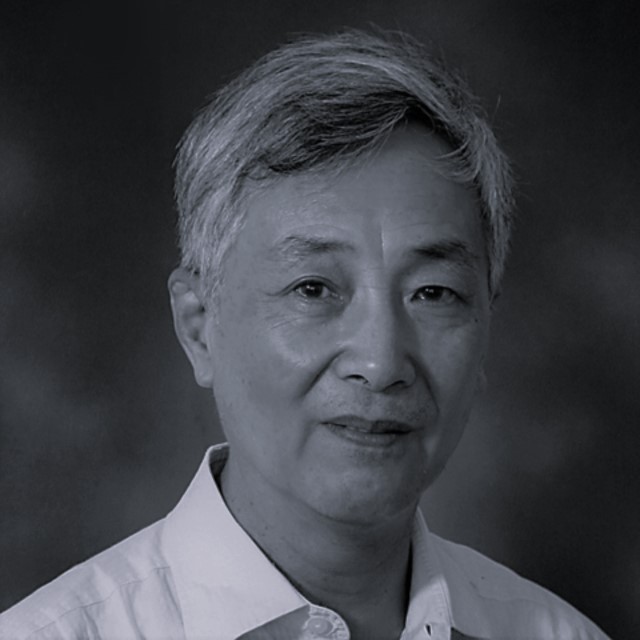- Supported by BIT.
- Endorsed by the Predictive Control and Intelligent Decision Committee of the Chinese Automation Association.
- Also endorsed by the Technical Committee 2.4 on Optimal Control of the International Federation of Automatic Control (IFAC TC 2.4).

Saša Raković
BIT
China
Saša V. Raković received the PhD degree in Control Theory from Imperial College London. His PhD research was awarded the Eryl Cadwaladr Davies Prize 2005 as the best PhD thesis in the EEE Department of Imperial College. He has been affiliated with a number of universities worldwide, including, inter alia, Imperial College London, ETH Zurich and Oxford University. He is currently a full professor with the School of Automation at Beijing Institute of Technology. Saša V. Raković's main interests and contributions lie within the areas of synthesis of control systems, analysis of dynamical systems, and decision making under constraints and uncertainty.

Yuanqing Xia
BIT
China
Professor Yuanqing Xia was born in Anhui Province, China, in 1971 and graduated from the Department of Mathematics, Chuzhou University, Chuzhou, China, in 1991. He received his M.S. degree in Fundamental Mathematics from Anhui University, China, in 1998 and his Ph.D. degree in Control Theory and Control Engineering from Beijing University of Aeronautics and Astronautics, Beijing, China, in 2001. During January 2002–November 2003, he was a Postdoctoral Research Associate in the Institute of Systems Science, Academy of Mathematics and System Sciences, Chinese Academy of Sciences, Beijing, China, where he worked on navigation, guidance and control. From November 2003 to February 2004, he was with the National University of Singapore as a Research Fellow, where he worked on variable structure control. From February 2004 to February 2006, he was with the University of Glamorgan, Pontypridd, U.K., as a Research Fellow, where he worked on networked control systems. From February 2007 to June 2008, he was a Guest Professor with Innsbruck Medical University, Innsbruck, Austria, where he worked on biomedical signal processing. Since July 2004, he has been with the School of Automation, Beijing Institute of Technology, Beijing, first as an Associate Professor, then, since 2008, as a Professor. And in 2012, he was appointed as Xu Teli Distinguished Professor at the Beijing Institute of Technology, then in 2016, as Chair Professor. In 2012, he obtained the National Science Foundation for Distinguished Young Scholars of China, and in 2015, he was honored as the Yangtze River Scholar Distinguished Professor, in 2016, he was supported by National High Level Talents Special Support Plan (“Million People Plan”) by the Organization Department of the CPC Central Committee. He is now the dean of School of Automation, Beijing Institute of Technology. His current research interests are in the fields of cloud control, networked control systems, and flight control. He has published eight monographs in Springer, John Wiley and CRC, and more than 100 papers in international scientific journals. He is a Deputy Editor of the Journal of Beijing Institute of Technology, Associate Editor of Acta Automatica Sinica, Control Theory and Applications, International Journal of Innovative Computing, Information and Control, International Journal of Automation and Computing. He obtained the Second Award of the Beijing Municipal Science and Technology (No. 1) in 2010 and 2015, the Second National Award for Science and Technology (No. 2) in 2011, and the Second Natural Science Award of the Ministry of Education (No. 1) in 2012.

Li Dai
BIT
China
Li Dai received the B.S. degree in Information and Computing Science in 2010 and the Ph.D. degree in Control Science and Engineering in 2016 from the Beijing Institute of Technology, Beijing, China. From March 2017 to July 2017, she was with the Griffith University, Australia, as a Research Fellow, where she worked on distributed control. From October 2017 to October 2018, she held a visiting position at Oxford University, UK, where she worked on model predictive control. Li Dai is currently an associate professor with the School of Automation, Beijing Institute of Technology. Her main research interests include model predictive control, distributed control, data-driven control, and cloud control systems.

Marco Campi
University of Brescia
Italy
Marco Claudio Campi is a professor of Automatic Control at the University of Brescia, Italy, where he has taught topics related to data-driven control, systems theory and inductive methods for more than twenty-five years. He is a distinguished lecturer of the Control Systems Society and until recently he has served as the chair of the Technical Committee IFAC on Modeling, Identification, and Signal Processing. He is a Fellow of IEEE and a recipient of the Giorgio Quazza prize and the IEEE CSS George S. Axelby outstanding paper award, received for the article "The Scenario Approach to Robust Control Design". He has delivered plenary addresses at major conferences, including CDC, MTNS, and SYSID. The research interests of Marco Campi include: data-driven decision making, stochastic control, epistemology, and the foundations and interpretation of probability theory.

Li Dai
BIT
China
Li Dai received the B.S. degree in Information and Computing Science in 2010 and the Ph.D. degree in Control Science and Engineering in 2016 from the Beijing Institute of Technology, Beijing, China. From March 2017 to July 2017, she was with the Griffith University, Australia, as a Research Fellow, where she worked on distributed control. From October 2017 to October 2018, she held a visiting position at Oxford University, UK, where she worked on model predictive control. Li Dai is currently an associate professor with the School of Automation, Beijing Institute of Technology. Her main research interests include model predictive control, distributed control, data-driven control, and cloud control systems.

Sebastien Gros
NTNU
Norway
Sebastien Gros received his Ph.D degree from EPFL, Switzerland, in 2007. After a journey by bicycle from Switzerland to the Everest base camp in full autonomy, he joined a R&D group hosted at Strathclyde University focusing on wind turbine control. In 2011, he joined the university of KU Leuven, where his main research focus was on optimal control and fast NMPC for complex mechanical systems. He joined the Department of Signals and Systems at Chalmers University of Technology, Göteborg in 2013, where he became associate Prof. in 2017. He is now full Prof. at NTNU, Norway and guest Prof. at Chalmers. His main research interests include numerical methods, real-time optimal control, reinforcement learning, autonomous vehicles and the optimal control of energy-related applications.

Gabriele Pannocchia
University of Pisa
Italy
Gabriele Pannocchia received the Ph.D. degree in Chemical Engineering from the University of Pisa (Italy) in 2002, where he is Full Professor since 2020. He held a Visiting Associate position at the University of Wisconsin - Madison (WI, USA) in 2000/2001 and in 2008. Dr. Pannocchia is author of about 120 papers in international journals, book chapters and in proceedings of international conferences. Dr. Pannocchia is Senior Editor for the Journal of Process Control, served as Associate Editor of Automatica, and he is the Vice-Chair for Education of the IFAC TC 2.4 (Optimal Control). Dr. Pannocchia was IPC co-chair of the IFAC Symposium DYCOPS 2013 held in Mumbai (India), Area Co-Chair/Associate Editor in IFAC DYCOPS 2016, IFAC World Congress 2017, IFAC NMPC 2018, UK Control 2018, IFAC World Congress 2020. He has been plenary speaker at 4th IEEE Colombian Conference on Automatic Control, and keynote speaker in several international congresses (IFAC DYCOPS 2010, IFAC NMPC 2015, IFAC DYCOPS 2016, IFAC ADCHEM 2018). Dr. Pannocchia was the NOC Chair of IFAC ADCHEM 2021 and IPC Chair of IFAC NMPC 2021. His research interests include: model predictive control systems, process simulation and optimization, numerical optimization, multivariable systems identification and performance monitoring, optimal planning and control for robotic systems.

Saša Raković
BIT
China
Saša V. Raković received the PhD degree in Control Theory from Imperial College London. His PhD research was awarded the Eryl Cadwaladr Davies Prize 2005 as the best PhD thesis in the EEE Department of Imperial College. He has been affiliated with a number of universities worldwide, including, inter alia, Imperial College London, ETH Zurich and Oxford University. He is currently a full professor with the School of Automation at Beijing Institute of Technology. Saša V. Raković's main interests and contributions lie within the areas of synthesis of control systems, analysis of dynamical systems, and decision making under constraints and uncertainty.

Yugeng Xi
Shanghai Jiao Tong University
China
Yugeng Xi is a Chair Professor of Shanghai Jiao Tong University (SJTU). He received Dr.-Ing. degree in electrical engineering at Technical University Munich, Germany in 1984. Since then, he has been with the Department of Automation, SJTU, and as a professor since 1988. Professor Xi’s research interests include model predictive control, large scale complex systems, and intelligent robotic systems. Particularly he has been working in the area of predictive control for more than 35 years. Oriented to the needs of predictive control applications, he has published more than 300 papers, focusing on developing quantitative analysis theory of predictive control systems, novel predictive control strategies and methods for complex industrial processes and large scale systems, robust model predictive control theory, and generalizing the predictive control principles. He published the first book on predictive control in China, “Predictive Control”, early in 1993. This book and several survey papers on predictive control were highly cited. Its revised version was published in 2013. The enhanced English version “Predictive Control: Fundamentals and Developments” was published by John Wiley & Sons Inc. in 2019. Professor Xi was the Vice Chair of the IFAC TC Large Scale Complex Systems (TC5.4), the Chair of ACA (Asian Control Association), the Vice President of CCA (Chinese Association of Automation) etc. Currently he is an advisory committee member of ACA, an honorary council member of CCA, and an advisory committee member of the TC Control Theory, CCA.

Yuanqing Xia
BIT
China
Professor Yuanqing Xia was born in Anhui Province, China, in 1971 and graduated from the Department of Mathematics, Chuzhou University, Chuzhou, China, in 1991. He received his M.S. degree in Fundamental Mathematics from Anhui University, China, in 1998 and his Ph.D. degree in Control Theory and Control Engineering from Beijing University of Aeronautics and Astronautics, Beijing, China, in 2001. During January 2002–November 2003, he was a Postdoctoral Research Associate in the Institute of Systems Science, Academy of Mathematics and System Sciences, Chinese Academy of Sciences, Beijing, China, where he worked on navigation, guidance and control. From November 2003 to February 2004, he was with the National University of Singapore as a Research Fellow, where he worked on variable structure control. From February 2004 to February 2006, he was with the University of Glamorgan, Pontypridd, U.K., as a Research Fellow, where he worked on networked control systems. From February 2007 to June 2008, he was a Guest Professor with Innsbruck Medical University, Innsbruck, Austria, where he worked on biomedical signal processing. Since July 2004, he has been with the School of Automation, Beijing Institute of Technology, Beijing, first as an Associate Professor, then, since 2008, as a Professor. And in 2012, he was appointed as Xu Teli Distinguished Professor at the Beijing Institute of Technology, then in 2016, as Chair Professor. In 2012, he obtained the National Science Foundation for Distinguished Young Scholars of China, and in 2015, he was honored as the Yangtze River Scholar Distinguished Professor, in 2016, he was supported by National High Level Talents Special Support Plan (“Million People Plan”) by the Organization Department of the CPC Central Committee. He is now the dean of School of Automation, Beijing Institute of Technology. His current research interests are in the fields of cloud control, networked control systems, and flight control. He has published eight monographs in Springer, John Wiley and CRC, and more than 100 papers in international scientific journals. He is a Deputy Editor of the Journal of Beijing Institute of Technology, Associate Editor of Acta Automatica Sinica, Control Theory and Applications, International Journal of Innovative Computing, Information and Control, International Journal of Automation and Computing. He obtained the Second Award of the Beijing Municipal Science and Technology (No. 1) in 2010 and 2015, the Second National Award for Science and Technology (No. 2) in 2011, and the Second Natural Science Award of the Ministry of Education (No. 1) in 2012.